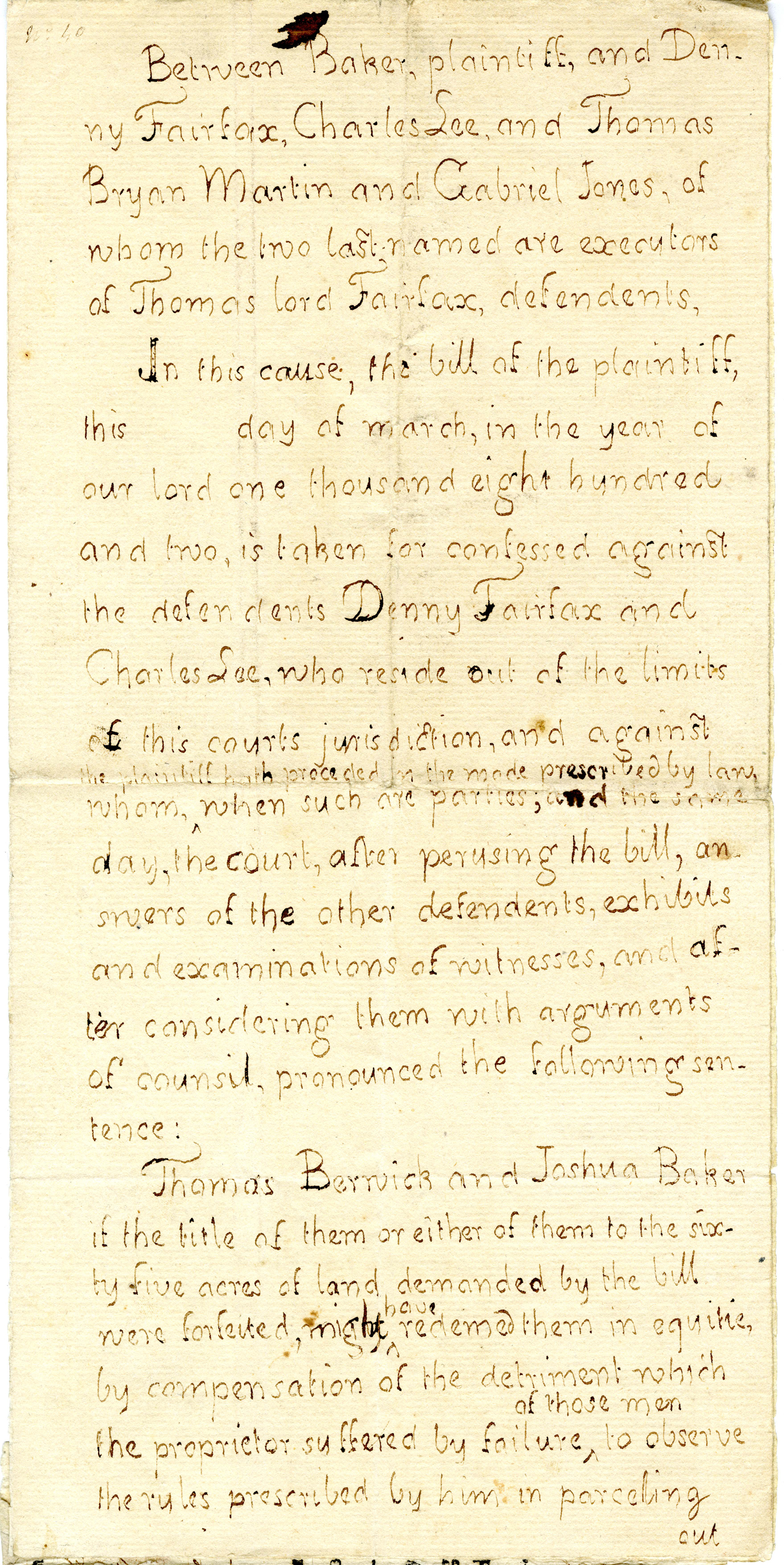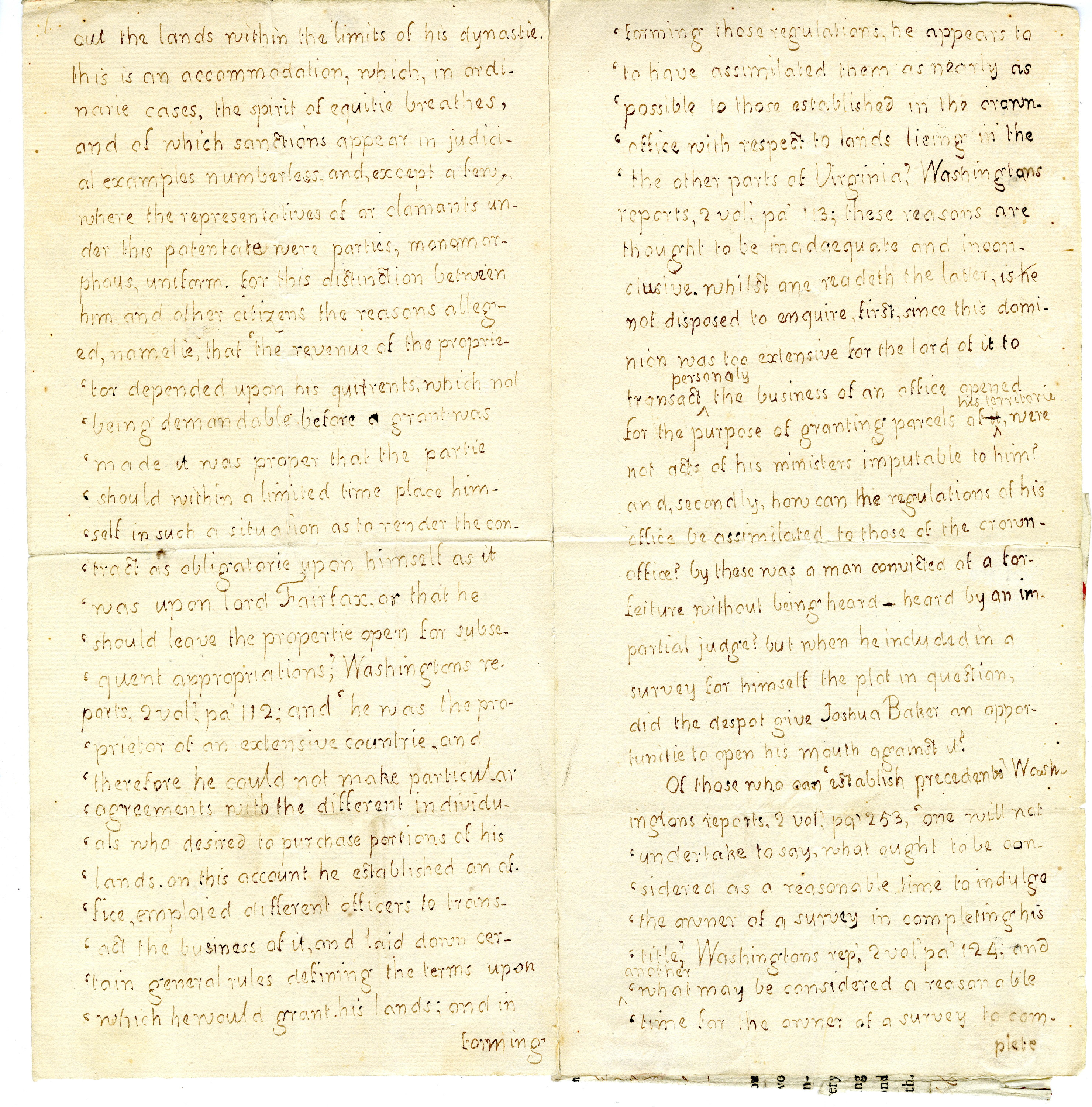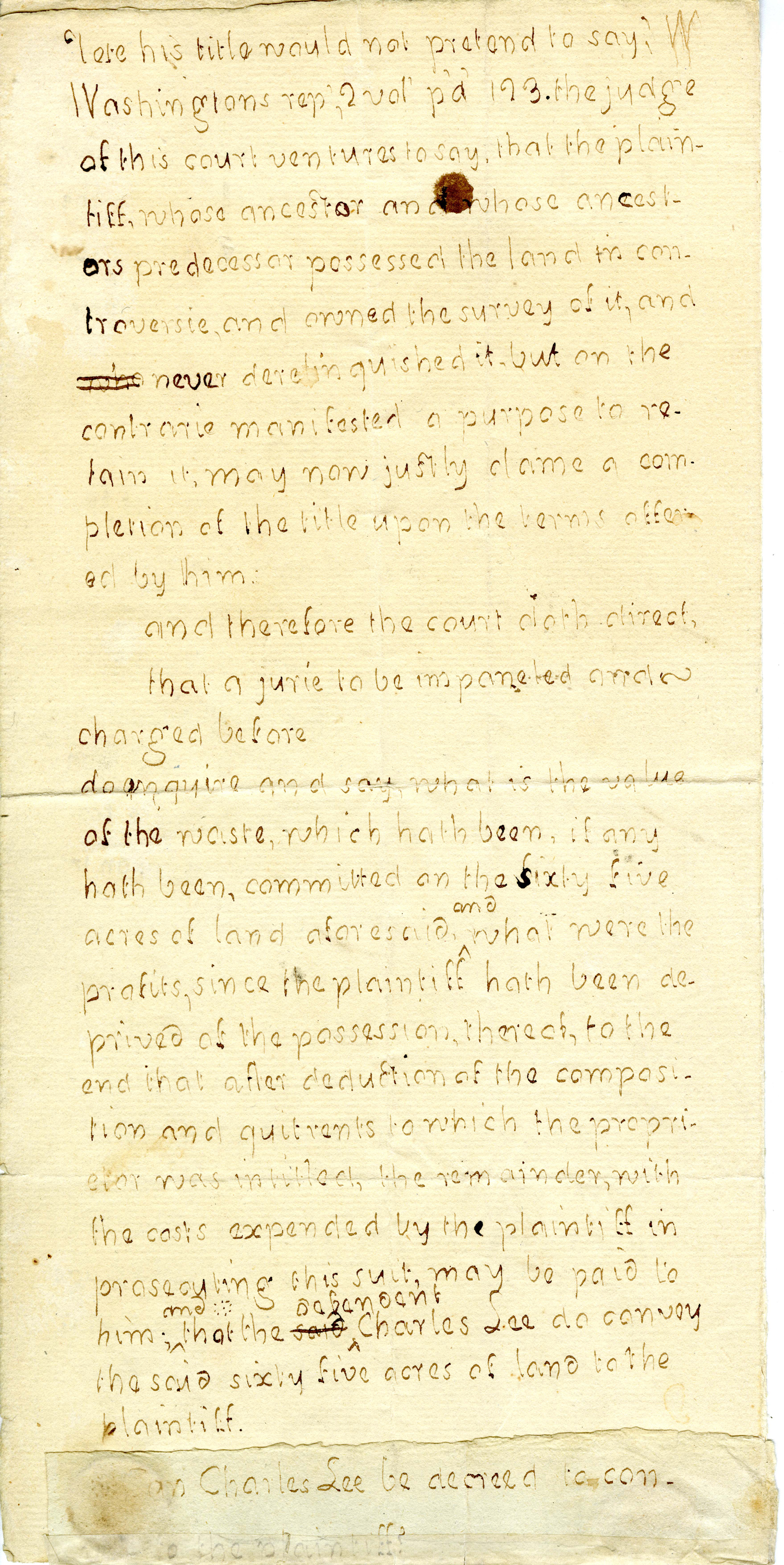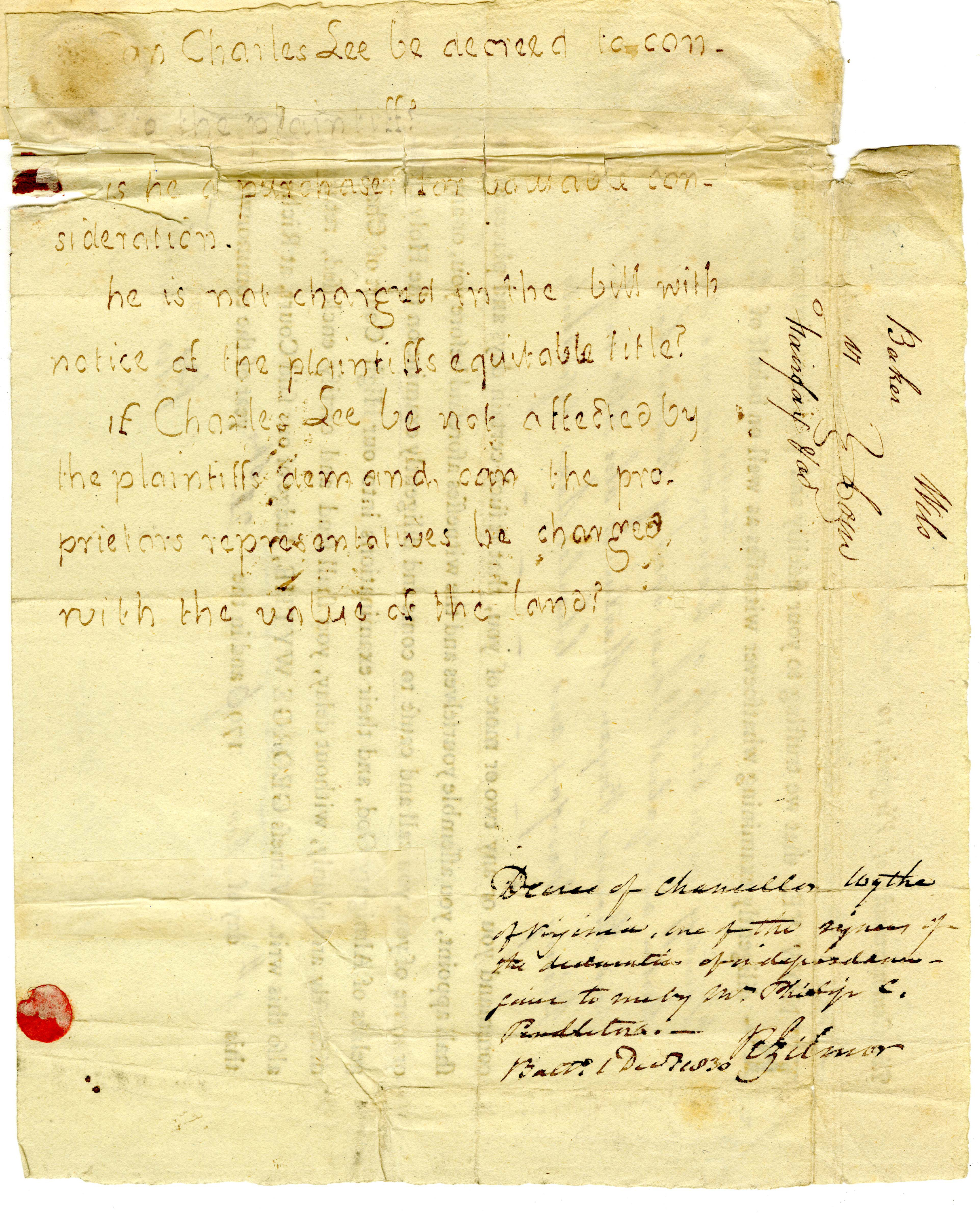Difference between revisions of "Decree in Baker v. Fairfax"
(→Page 2) |
(→Page 3) |
||
| Line 27: | Line 27: | ||
<div style="overflow: hidden;"> | <div style="overflow: hidden;"> | ||
<blockquote> | <blockquote> | ||
| − | forming these regulations, he appears to to have assimilated them as nearly as possible to those established in the crown office with respect to lands lieing in the the other parts of Virginia? Washingtons reports, 2vol:pa' 113; these reasons are thought to be inadequate and inconclusive. whilst one readeth the latter, is he not disposed to enquire, first, since this dominion was too extensive for the lord of it to transact^<sup>personaly</sup> the business of an office opened for the purpose of granting parcels of <s>it</s>^<sup>his territorie</sup>, were not acts of his ministers imputable to him? and, secondly, how can the regulations of his office be assimilated to those of the crown office? by these was a man convicted of a forfeiture without being heard _ heard by an impartial judge? but when he included in a survey for himself the plot in question, did the despot give Joshua Baker an opportunitie to open his mouth against it? Of those who can establish precedential Washingtons reports, 2vol:pa253, one will not undertake to say, what ought to be considered as a reasonable time to indulge the owner of a survey in completing his title; Washingtons rep. 2vol'pa'124; and what may be considered a reasonable time for the owner of a survey to complete | + | forming these regulations, he appears to to have assimilated them as nearly as possible to those established in the crown office with respect to lands lieing in the the other parts of Virginia? [[Reports of Cases Argued and Determined in the Court of Appeals of Virginia|Washingtons reports]], 2vol:pa' 113; these reasons are thought to be inadequate and inconclusive. whilst one readeth the latter, is he not disposed to enquire, first, since this dominion was too extensive for the lord of it to transact^<sup>personaly</sup> the business of an office opened for the purpose of granting parcels of <s>it</s>^<sup>his territorie</sup>, were not acts of his ministers imputable to him? and, secondly, how can the regulations of his office be assimilated to those of the crown office? by these was a man convicted of a forfeiture without being heard _ heard by an impartial judge? but when he included in a survey for himself the plot in question, did the despot give Joshua Baker an opportunitie to open his mouth against it? Of those who can establish precedential Washingtons reports, 2vol:pa253, one will not undertake to say, what ought to be considered as a reasonable time to indulge the owner of a survey in completing his title; Washingtons rep. 2vol'pa'124; and what may be considered a reasonable time for the owner of a survey to complete |
</blockquote> | </blockquote> | ||
</div> | </div> | ||
Revision as of 08:51, 22 September 2016

Wythe's decree from March, 1802 in the case of Baker v. Fairfax.[1]
This series of pages details Wythe's decree in a land dispute. The disputed land was the Northern Neck Proprietary, formerly owned by Lord Fairfax. In the end, the plaintiff was awarded the land, plus court costs. In addition, the defendant was ordered to pay the plaintiff whatever profits he had unjustly gotten from the land, as well as costs to offset any damages done to it.
The manuscript is attached with an earlier printed legal form for a commission to take depositions in the case from 1796, in the hand of Wythe's clerk, Peter Tinsley. On the back of the commission — page five displayed here — are Wythe's notes on the case which appear to be separate from his decision.
Contents
Document text, March 1802
Page 1
Between Baker, plaintiff, and Denny Fairfax, Charles Lee, and Thomas Bryan Martin and Gabriel Jones, of whom the two last named are executors of Thomas lord Fairfax, defendents, In this cause, the bill of the plaintiff, this day of march, in the year of our lord one thousand eight hundred and two, is taken for confessed against the defendents Denny Fairfax and Charles Lee, who reside out of the limits of this courts jurisdiction, and against the plaintiff hath proceded in the mode prescribed by law. Whom,^ when such are parties; and the same day, the court, after perusing the bill, answers of the other defendents, exhibits and examinations of witnesses, and after considering them with arguments of counsil, pronounced the following sentence: Thomas Berrvick and Joshua Baker in the title of them or either of them to the six-ty five acres of land demanded by the bill were forfeited, might^have redemed them in equitie, by compensation of the detriment which the proprietor suffered by failure^of those men to observe the rules prescribed by him in parceling out
Page 2

Page 3
Page 4

Page 5
[Page attached to bottom of previous page]

See also
References
- ↑ "Decision of George Wythe in a lawsuit, November 9, 1796." Charles Roberts Autograph Letters Collection, Quaker & Special Collections, Haverford College, Haverford, Pennsylvania.